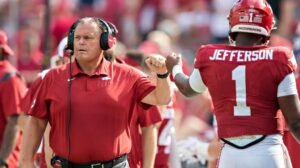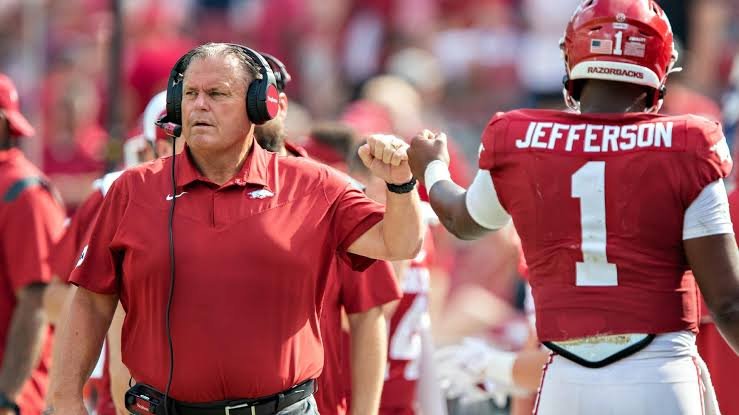Arkansas Razorbacks head coach is under mounting pressure as questions continue to swirl about his ability to steer the program back to prominence. After back-to-back disappointing campaigns, including an underwhelming debut in the Southeastern Conference (SEC), frustration is growing among fans, boosters, and analysts. The recent seasons have been marked by inconsistency, missed opportunities, and struggles against key rivals—factors that have amplified the calls for a turnaround. Many had high expectations when the Razorbacks secured his services, but the lack of significant progress has made his tenure a talking point across college football.

Despite the setbacks, the university leadership showed a vote of confidence last year by awarding him a six-year, $51 million extension. This hefty deal was intended to solidify stability and give him the resources needed to execute his long-term vision. It was also seen as a statement to potential recruits and rival programs that Arkansas was committed to its head coach for the foreseeable future. However, with each loss piling up, that investment is being increasingly scrutinized. Supporters are beginning to ask whether the program is getting the return they expected from such a large financial commitment.
One of the more notable moves during his tenure was bringing in former NFL executive Jim Nagy to help shape the program’s recruitment and player development strategy. Nagy’s hiring was widely praised as a bold, forward-thinking decision designed to tap into his pro-level scouting expertise. The idea was to identify and attract players who could excel both at the college level and potentially in the NFL. While the move generated early optimism, the on-field results have yet to reflect the anticipated leap in competitiveness. Critics point out that elite recruits are still gravitating toward other SEC powerhouses, leaving Arkansas struggling to keep pace.

Adding to the tension is the fact that the SEC remains one of the toughest and most unforgiving conferences in the nation. Every week presents another formidable challenge, and there’s little room for slow development or learning curves. For the Razorbacks, the margin for error is razor-thin, and the fans’ patience is wearing equally thin. Rival programs that were once considered on par with Arkansas have surged ahead, making the gap even more glaring. The coach’s leadership, game-day adjustments, and player discipline have all been questioned as potential factors in the team’s uneven performance.
Behind the scenes, the pressure is more than just about wins and losses. Razorbacks boosters—who play a significant role in funding the program—are keeping a close watch on recruiting rankings, attendance figures, and overall program morale. The business side of college football demands consistent results to maintain sponsorship deals and media attention. A string of mediocre seasons risks not only competitive decline but also diminished revenue streams. The next season is being billed as a make-or-break period, with some insiders suggesting that anything short of a strong bowl game appearance could trigger major changes.

For now, the head coach remains publicly confident, often expressing belief in his staff and players while emphasizing that rebuilding is a process. His supporters argue that the foundation is being laid for future success, pointing to glimpses of potential in younger players and flashes of strong play in certain matchups. But in the high-stakes world of SEC football, promises and potential must eventually translate into victories. As the new season approaches, all eyes will be on Fayetteville to see whether the Razorbacks can finally deliver the breakthrough their fans have been waiting for—or whether the program will once again be left searching for answers.
